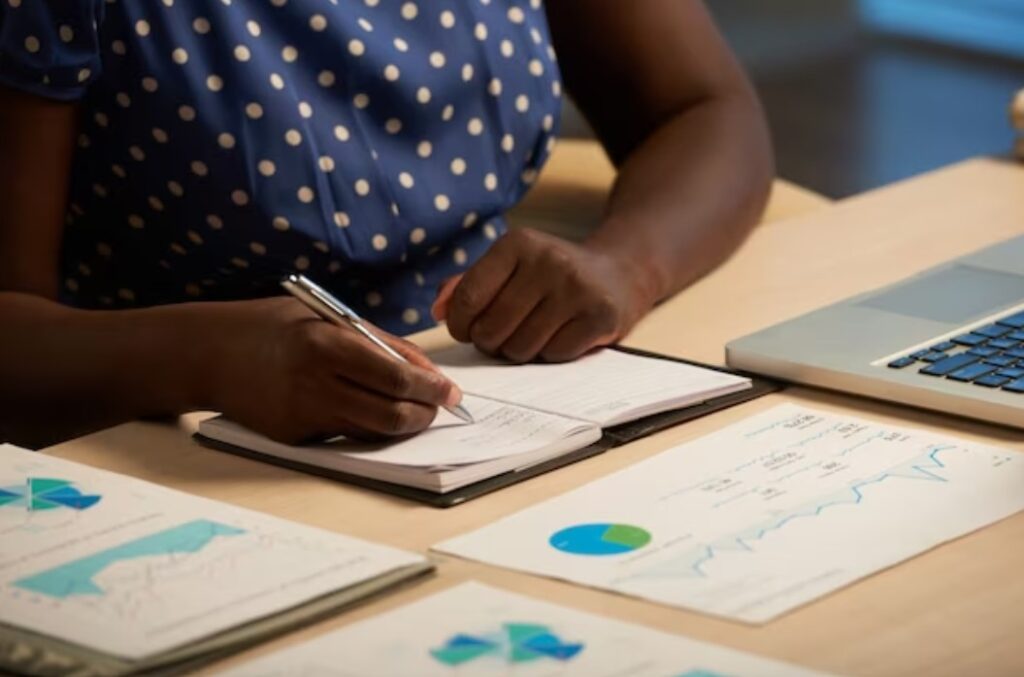A personal budget is a financial plan that sets limits on the amount of money that will be spent on each category of expenses in a given period, usually a month or a year. It’s a tool that helps individuals and families control their money, reduce unnecessary expenses, save for future goals, and improve overall financial health.
Here’s a breakdown of the main components of a personal budget:
Income: This is the total amount of money coming in. It includes wages or salary from jobs, but it can also include other sources of income such as interest, dividends, rental income, or money from a side business.
Expenses: These are the costs that you incur. Expenses can be divided into fixed expenses, which stay the same each month (like rent or a car payment), and variable expenses, which can change from month to month (like groceries or utility bills). Sometimes you want to use virtual cards that you have the power to freeze and unfreeze or use virtual wallets that are not connected to your banks. These kinds of products and features are available with FXKudi.
Savings: This is the portion of income that is set aside for future use. Savings can be for short-term goals (like a vacation or emergency fund), medium-term goals (like a down payment on a house), or long-term goals (like retirement).

The goal of a personal budget is to ensure that you don’t spend more than you earn. By tracking your income and expenses, you can identify areas where you might be overspending, and make adjustments to save money and reach your financial goals. A personal budget also provides a sense of control over your finances, which can reduce stress and contribute to overall wellbeing.
The Power of Control
Firstly, a personal budget is about control. It empowers you to make informed decisions about your money. Gone are the days of wondering where your paycheck disappeared to. With a budget, you have a clear snapshot of your finances. It allows you to see your income, your expenditures, and where you might be overspending. This level of control can be liberating, giving you the confidence to make financial decisions without second-guessing yourself.
Setting and Achieving Goals
Next, a personal budget is an excellent tool for setting and achieving goals. This isn’t limited to financial goals like saving for a vacation or paying off a loan. It also extends to personal goals. Maybe you’d like to cut down on takeout meals and cook more at home, or perhaps you want to allocate more funds to your fitness or education. By budgeting, you can assign dollars to these goals and track your progress.
Enhancing Mental Wellbeing
Personal budgets can also play a significant role in enhancing your mental wellbeing. Financial stress is a common issue for many people, and not knowing where your money is going can exacerbate this stress. When you have a budget and stick to it, you gain a sense of stability and predictability in your life, which can alleviate anxiety and contribute to your overall mental health.
Building Healthy Financial Habits
Implementing a personal budget helps you build and maintain healthy financial habits. It’s not just about restricting spending; it’s about making more mindful decisions about where your money goes. This shift in mindset can lead to long-term changes in your financial behavior, setting you up for future success.
Boosting Financial Literacy
Lastly, creating and managing a personal budget naturally boosts your financial literacy. You’ll become more knowledgeable about income, expenses, savings, and investments. This knowledge is invaluable and can be beneficial in all areas of your life, from understanding the financial news to negotiating your salary or benefits package at work.
A personal budget isn’t merely a tool for managing money; it’s a means of gaining control, setting and achieving goals, reducing stress, building healthy financial habits, and improving financial literacy. So, I encourage everyone to consider the broader benefits and start implementing a personal budget if you haven’t already done so. The rewards are far-reaching and extend well beyond your bank account.
Steps to Creating a good personal budget

Developing a healthy personal budget can be a powerful way to gain control over your finances, reduce stress, and achieve your financial goals. Here’s a step-by-step guide on how to create a budget that works for you.
Step 1: Identify Your Income
The first step in any budgeting process is to determine your total income. This isn’t just your salary; it includes any additional sources of income you might have like dividends, interest, rental income, or side gigs. Make sure to use your net income (the amount you take home after taxes) for this step.
Step 2: List Your Expenses
Next, list all your expenses. Start with your fixed expenses, which are bills that don’t change much from month to month, such as your rent or mortgage, car payment, or insurance. Then, move on to variable expenses, which might include groceries, utilities, dining out, and personal care items. Don’t forget to include less frequent expenses like annual insurance premiums or car maintenance.
Step 3: Set Your Financial Goals
Before you start allocating your income to various expenses, it’s essential to identify your financial goals. These could be short-term goals like saving for a vacation, mid-term goals like buying a car, or long-term goals like retirement. Having clear goals in mind will help guide your budgeting process.
Step 4: Create Your Budget
Now it’s time to allocate your income. A popular method is the 50/30/20 rule, which suggests you should spend 50% of your income on needs, 30% on wants, and save 20%. However, these percentages can be adjusted based on your personal circumstances and goals. There are many budgeting apps and tools available that can help with this step.
Step 5: Track Your Spending
After you’ve created your budget, the next step is to track your spending. This can be eye-opening as it allows you to see where your money is going and identify any problem areas. You might find that you’re spending more on dining out or entertainment than you thought. By tracking your spending, you can make necessary adjustments to your budget.
Step 6: Review and Adjust Regularly
Finally, remember that your budget isn’t set in stone. It should be a living, breathing document that you review and adjust regularly. Your income and expenses can change, and your budget should adapt to these changes. Regularly reviewing your budget also keeps you accountable and on track towards your financial goals.
Creating a personal budget might seem daunting at first, but once you get started, it can be a liberating and empowering process. By following these steps, you’ll be on your way to financial health and independence.


Leave a Reply